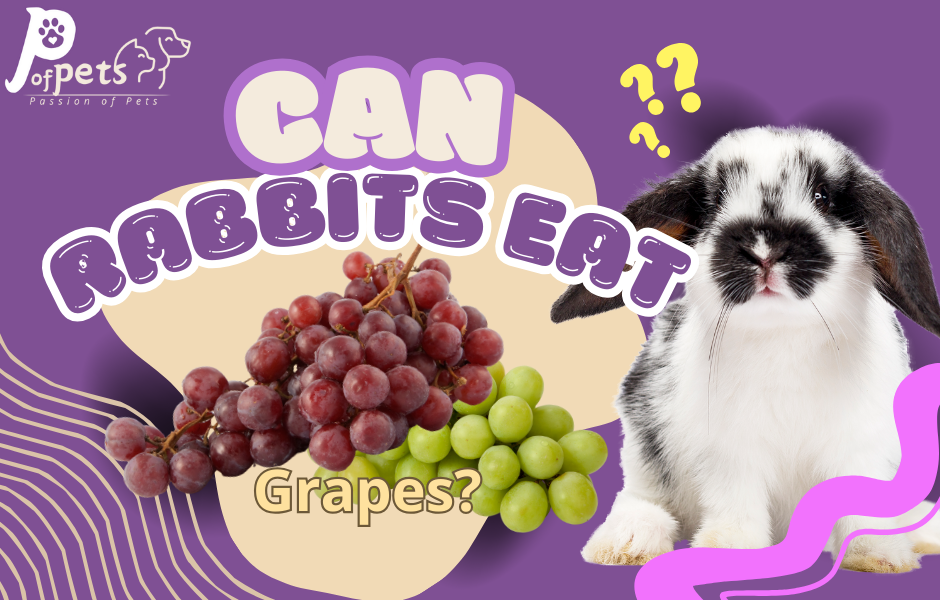Rabbits are adorable, curious creatures that bring joy to many homes. As a rabbit owner, ensuring your furry friend has a balanced and healthy diet is a top priority. While hay and fresh vegetables form the cornerstone of a rabbit’s diet, you might wonder whether certain fruits, such as grapes, are safe to include. This blog explores everything you need to know about feeding grapes to rabbits—including their benefits, risks, and best practices for incorporating them into your bunny’s diet.
Can Rabbits Eat Grapes?
Yes, rabbits can eat grapes, but only in moderation. Grapes are non-toxic to rabbits and can be offered as an occasional treat. However, they are high in natural sugars, which can cause health issues if fed excessively. As with any new food, grapes should be introduced gradually to ensure your rabbit’s digestive system can handle them.
Nutritional Value of Grapes
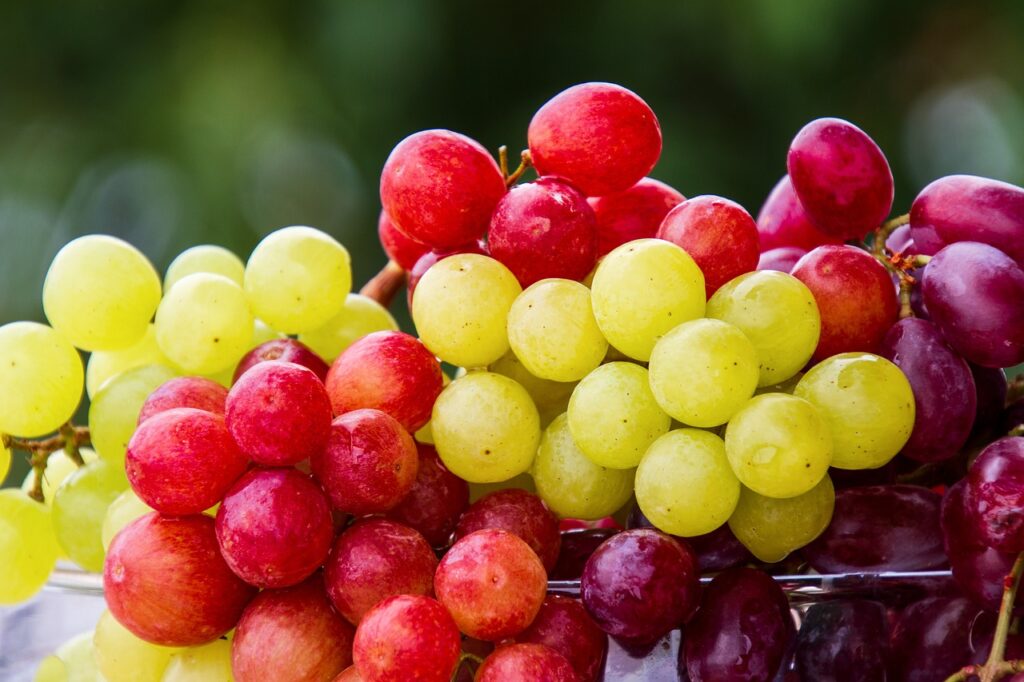
Image by Nicky ❤️🌿🐞🌿❤️
Grapes are sweet and succulent but heavily endowed with all sorts of important nutrients that are pretty great for general health. If you look to add fruits to your diet, grapes boast a great nutritional profile that makes them very relatable. Now, let’s see in detail the nutritional value of grapes and how it will help in health benefits.
- Water Content
One of the main ingredients in grapes is the water content in them. Actually, grapes are made of about 80% water; hence, it can be a fruit snack to keep your body hydrated. The body needs hydration to help it digest, circulate blood, and control temperature. Munching on grapes will definitely keep your body well hydrated during the day.
- Sugar Content
While grapes are full of natural sugars, which could give a boost of energy, they have to be consumed in moderation. Excessive sugar consumption will upset your digestive balance and lead to a host of health issues. If you are watchful about sugar intake, be aware of how many grapes you eat and keep them in smaller portions to avoid any negativity.
- Vitamin Content
Grapes are rich in vitamins, especially Vitamin C and Vitamin K. Vitamin C is a very good antioxidant that helps boost your immunity and protect your cells from certain damages. Vitamin K is important in the process of blood coagulation and bones. Consuming grapes will help you get an adequate amount of these two important vitamins in your body.
- Antioxidants
Resveratrol is a potent antioxidant, replicated in the grape, related to numerous health benefits. Antioxidants neutralize free radicals that may promote inflammation, oxidative stress, and chronic diseases within the body. Regular consumption of grapes would ensure derivation of the antioxidant properties of resveratrol in promoting overall health.
Benefits of Feeding Grapes to Rabbits
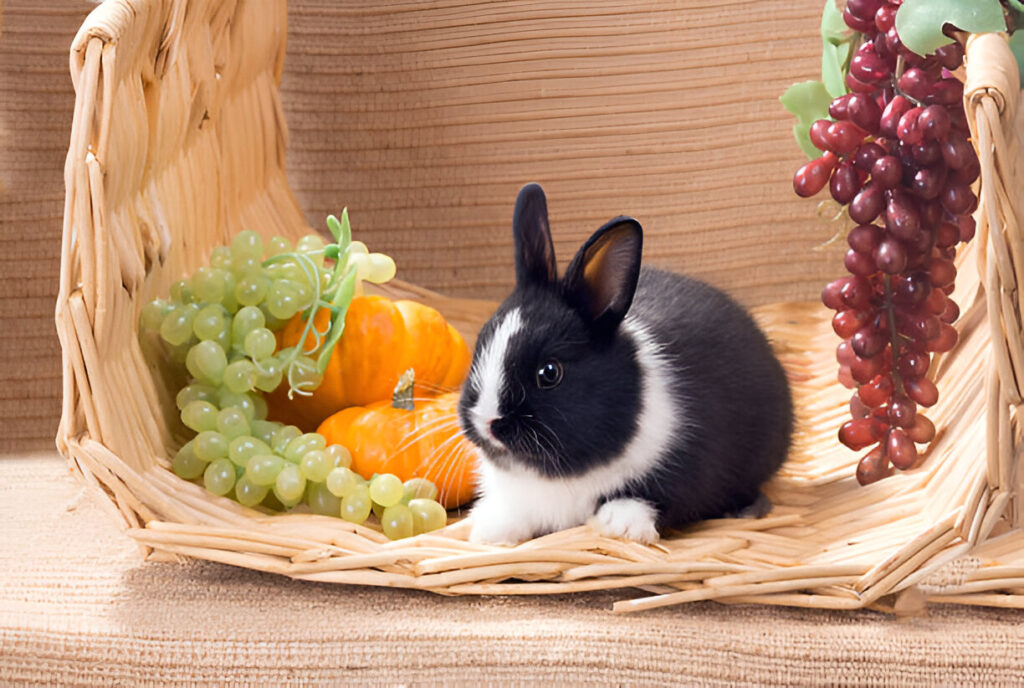
In moderation, grapes have a few health benefits:
- Hydration: The high amount of water in grapes can make it an excellent way to supplement your rabbit’s hydration. During the warmer seasons, or when your rabbit isn’t drinking as much water, the natural moisture of grapes will keep them well-hydrated, especially those prone to dehydration in hotter climates.
- Variety: Rabbits are animals that like to have variety in their food. Adding grapes as an occasional treat will introduce a new flavor and texture that can make mealtime more interesting for your bunny. This variety can keep your rabbit mentally stimulated and prevent them from getting bored with their regular food.
- Antioxidants: Antioxidants are like grapes and include such antioxidants as resveratrol, which works together with the body to neutralize the proliferation of free radicals. Though specific studies as yet are not abundant pertaining directly to rabbits, when this antioxidant is consumed in moderation it would support a healthy immune and wellbeing.
Risks of Feeding Grapes to Rabbits
When it comes to feeding your pet rabbit, it’s important to be aware of the potential risks associated with certain foods. Grapes, while a tasty treat for us humans, may not be the best choice for your furry friend. Despite their benefits, there are some important considerations to keep in mind when it comes to feeding grapes to rabbits.
- High Sugar Content
One of the major risks of feeding grapes to rabbits is their high sugar content. As much as rabbits love grapes for their sweet taste, eating them in large amounts can result in weight gain and other health complications. The natural sugars within grapes will easily unbalance the sensitive digestive system of a rabbit, creating gastrointestinal problems or even diabetes. - Digestive Problems
Rabbits have very weak digestion, and giving them too many sweet fruits like grapes can lead to stomach upset. Excessive feeding of grapes upsets the balance of good bacteria in the gut and may lead to diarrhea or bloating. New foods should be introduced into the diet of a rabbit gradually to avoid some challenges to its digestive system. - Choking Hazard
Another risk of feeding whole grapes to rabbits is the potential choking hazard they pose. For smaller rabbits, especially, it’s often hard to chew and swallow whole grapes. To prevent any accidents, always cut grapes into small, manageable pieces before offering them to your rabbit. This will reduce the risk of choking and make it easier for your pet to safely enjoy this treat. - Pesticides
Feeding your rabbit store-bought grapes can be done, but you need to be conscious about pesticide residues. Grapes are among the most sprayed crops, so they can carry chemicals that might be quite dangerous for your rabbit. To reduce the risk, one should always wash grapes very well before giving them to the rabbit.
How to Safely Feed Grapes to Your Rabbit
If you’re a rabbit owner looking to treat your furry friend to a tasty snack, you might be considering grapes. Fortunately, this is one fruit that works well as an occasional reward for rabbits, but there’s a way to do it that will keep them safe and happy.
- Choose Fresh Grapes
If you want to feed your rabbit grapes, you will want to go with fresh, organic grapes as much as possible. Avoid canned or dried grapes, like raisins, since they are concentrated in sugar and could be dangerous for your rabbit’s health. Fresh grapes ensure that the snack is nutritious and safe for your rabbit. - Wash Thoroughly
Before offering grapes to your rabbit, make sure to wash them under running water. This will help to remove the pesticide residues or dirt that might be on the skin of the grapes. Clean grapes will not only be safer for your rabbit to eat but will also ensure that they enjoy their snack to the fullest. - Cut into Pieces
But in order not to put your rabbit into a life-threatening position-which can be choked-the best thing would be to cut them down into smaller sizes. Also, you would cut grapes into small bits to save your rabbit from swallowing large pieces whole when feeding, which would eliminate the dangers of choking. - Introduce Gradually
Introduce grapes to your rabbit for the first time in small pieces. Offer a small piece of grape to your rabbit and monitor them closely for any adverse reactions, such as diarrhea or a lack of appetite. Gradual introduction of grapes will ensure that your rabbit tolerates this new treat well. - Limit the Quantity
While grapes can be sweet treats for your rabbit, remember that this is mostly a moderation-based process, and one or two small portions of grape, not even daily, once or twice a week is quite well. Grapes should also be an occasional treat and by no means be part of the diet; your rabbit should show a balance and healthy features.
Signs Your Rabbit Likes or Dislikes Grapes
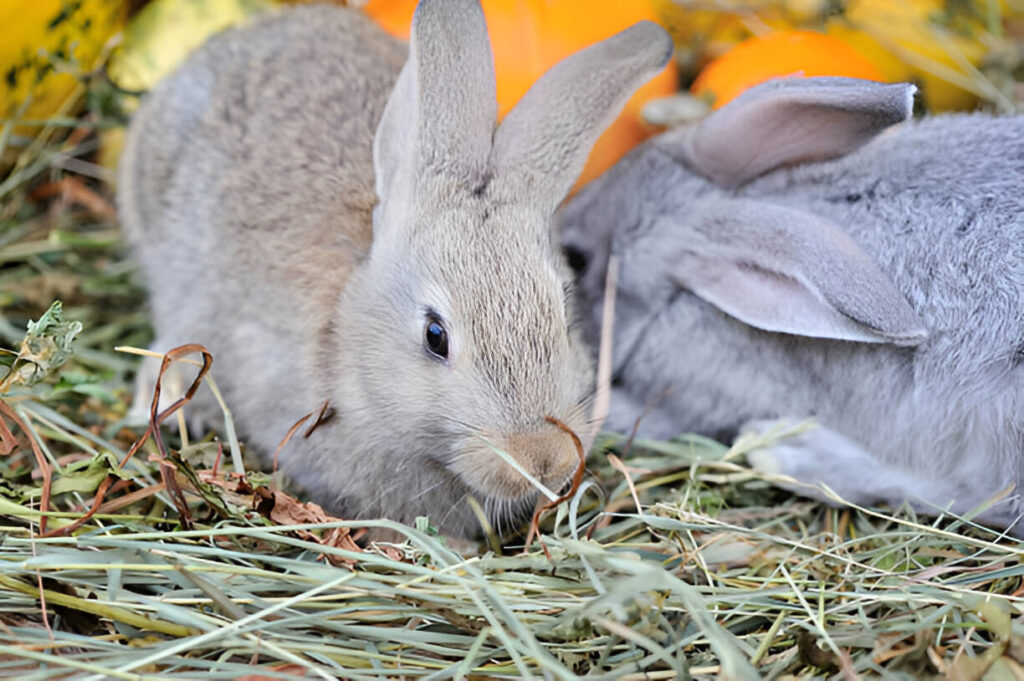
If you are a rabbit owner, you may have been wondering if your furry friend likes grapes or not. As much as some rabbits enjoy the sweet taste of grapes, others may not be as enthusiastic about this fruit. It is important to observe your rabbit’s reactions whenever you give them grapes, whether they like or dislike the treat. Here are some signs to look out for:
Likes Grapes
One of the most obvious ways that your rabbit enjoys grapes is through the eager reaction they have when you give them this fruit. If your rabbit quickly consumes the grape and appears anxious for more, then it is pretty safe to assume that they enjoy this treat. Other rabbits may even beg for more grapes, showing just how much they love the sweet and juicy fruit.
Dislikes Grapes
The moment your rabbit sniffs the grape but then is uninterested or moves it away, it will be a sign of not liking grapes. Rabbits are known to be fussy, and this will not be anything out of the ordinary since they do turn their noses up at things. If your rabbit is not interested in grapes, then it will be best to keep them off the plate altogether.
Negative Reaction
Sometimes, even though rabbits seem to love grapes, they can actually have a negative reaction to them. Diarrhea or bloating are signs of digestive upset that may mean your rabbit is reacting poorly to grapes. If either symptom has occurred after having fed your rabbit grapes, discontinue this treat and seek further advice from your veterinarian.
Feeding your rabbit fruits like grapes requires moderation. While some rabbits enjoy an occasional grape as a treat, not all of them will have a good reaction to this fruit. Paying attention to the reactions and behavior of your rabbit when offering them grapes will help you determine whether or not this treat is suitable for your furry friend.
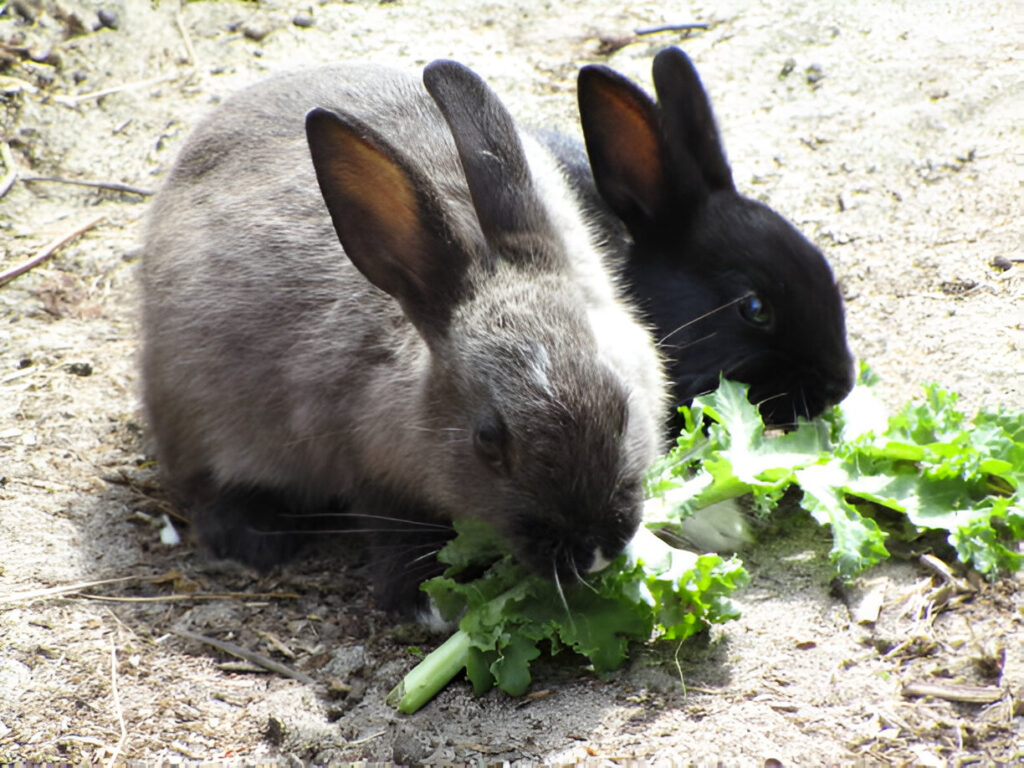
Alternatives to Grapes for Rabbits
Amongst the treats that can be given to your pet rabbit, grapes top the list. Not all rabbits like grapes, and many owners like to mix and vary their rabbit snacks. If you’re looking for something other than grapes for your furry buddy, here are some alternatives that are good to go for your rabbit:
Strawberries
Strawberries are sweet and full of vitamins that will be very useful for your rabbit. These fruits contain very low sugar, which makes them excellent treats for your rabbit from time to time. Just make sure to wash them well before giving them to your bunny to remove any pesticide or dirt.
Blueberries
Another variety within the berries category is blueberries. These tiny fruits are packed with antioxidants, which enhance your rabbit’s immunity. Besides, blueberries are easy to manage and can be used to make some quick snacks for your rabbit. However, try to provide this fruit in limited quantity, so that your rabbit doesn’t develop any gastrointestinal problem.
Apple Slices
An apple a day can be a treat for your rabbit, too! Make sure, though, to take the seeds out of the apple slices before giving them to your pet. Apple seeds contain toxic compounds that are harmful to rabbits. Only give your furry friend seed-free apple slices.
Carrot Slices
Carrots are a classic rabbit treat because they are crunchy in nature and sweet. Since carrots are really sugar-rich, they are rightly given to your pet, albeit in small measures. Slices of carrots can be a nice occasional snack and even a delightful special indulgence for your bunny.
Herbs
Fresh herbs can be a healthy and aromatic snack for your rabbit, like parsley, cilantro, or mint. Herbs add variety to the diet of your pet but also include essential nutrients and vitamins in them. You may give small amounts of fresh herbs as a treat that your rabbit can enjoy.
Frequently Asked Questions About Rabbits and Grapes
1. Can baby rabbits eat grapes?
No, baby rabbits should not eat grapes. Their digestive systems are too sensitive for sugary fruits. Stick to their primary diet of mother’s milk, hay, and eventually, leafy greens as they grow older.
2. Can rabbits eat grape leaves or vines?
Yes, rabbits can safely eat grape leaves and vines in moderation. These parts of the plant are less sugary and can provide a healthy snack. Ensure they are pesticide-free.
3. What happens if my rabbit eats too many grapes?
If your rabbit consumes too many grapes, they may experience diarrhea, bloating, or other digestive issues. Provide plenty of hay to help restore their gut balance and consult a veterinarian if symptoms persist.
4. Are seedless grapes better for rabbits?
Yes, seedless grapes are preferable, as grape seeds can pose a choking risk or cause intestinal blockages.
Conclusion
Rabbits can eat grapes, but moderation is key. These sweet treats should be offered sparingly and always prepared properly to ensure your rabbit’s safety and health. While grapes can provide hydration and variety, their high sugar content makes them unsuitable as a regular part of your rabbit’s diet. Always prioritize your rabbit’s primary dietary needs, such as hay, fresh vegetables, and clean water.

By following the tips and guidelines in this blog, you can confidently offer your rabbit the occasional grape treat while ensuring they stay healthy and happy. Remember, a well-balanced diet is the cornerstone of a long, joyful life for your furry friend! 🐇🍇
healthy treats for rabbits
Yuns Legdm is a passionate advocate for pet care and the founder of this website, dedicated to providing valuable information for fellow pet lovers and veterinary professionals worldwide. With a deep love for animals, Yuns created this platform to connect passionate pet owners with expert insights from veterinarians around the globe.
This website grows with you—the passionate pet owners and veterinary experts—creating a trusted space where knowledge, experience, and love for animals come together. Whether you’re seeking advice on pet health, nutrition, or general well-being, this platform is here to support you on your journey of responsible and loving pet care.

